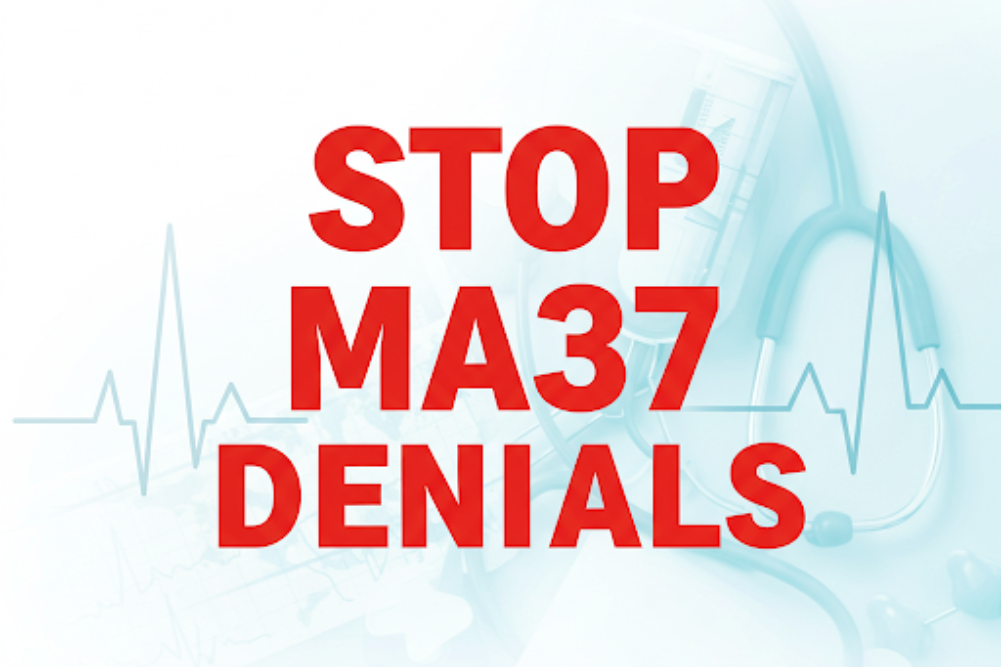MA37 denials, caused by missing, incomplete, or invalid patient address information, are a major headache for healthcare providers and practice managers. These denials lead to delayed payments, increased administrative work, and significant revenue losses. In this blog, we’ll explore the root causes of MA37 denials and provide actionable strategies to prevent them, ensuring a smoother revenue cycle for your practice.
Understanding MA37 Denials
MA37 denials occur when the patient’s address on a claim doesn’t meet the payer’s requirements. Whether it’s incorrect, incomplete, or outdated, this seemingly small error can result in claim rejections, payment delays, and added stress for your team.
Common Causes of MA37 Denials
- Data Entry Errors: Typos or missing details during patient registration or claim submission.
- Outdated Patient Records: Patients move but fail to update their address in your system.
- Payer Requirements Mismatch: Address formats that don’t align with payer-specific guidelines.
- System Integration Issues: Discrepancies between your EHR and billing system.
Strategies to Prevent MA37 Denials
Here’s how practice managers can tackle MA37 denials head-on:
- Robust Patient Registration: Collect and verify patient addresses during registration. Cross-check with IDs and insurance cards to ensure accuracy.
- Regular Data Updates: Implement a process to routinely update patient contact information. Send reminders to patients to confirm their details.
- Adhere to Payer Guidelines: Stay informed about each payer’s address formatting requirements and ensure compliance.
- System Integration Checks: Regularly audit your EHR and billing systems to ensure seamless data flow and eliminate discrepancies.
- Leverage Advanced Analytics: Use analytics tools to identify patterns in MA37 denials and address root causes proactively.
- Train Your Team: Provide ongoing training to staff on the importance of accurate data entry and best practices for maintaining patient records.
Why This Matters
MA37 denials aren’t just an administrative nuisance—they directly impact your practice’s bottom line. By addressing patient address errors, you can reduce denials, speed up reimbursements, and improve your revenue cycle efficiency.
Partnering with Experts
If MA37 denials are a persistent issue, consider partnering with a trusted revenue cycle management (RCM) provider. They can help streamline your processes, optimize claim submissions, and maximize revenue.
For practice managers, tackling MA37 denials is a must. By implementing these strategies, you can minimize errors, improve claim accuracy, and keep your revenue cycle strong. Start today and turn this challenge into an opportunity for growth.

